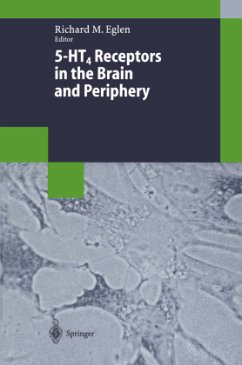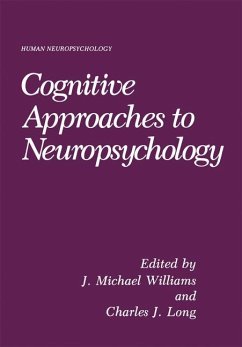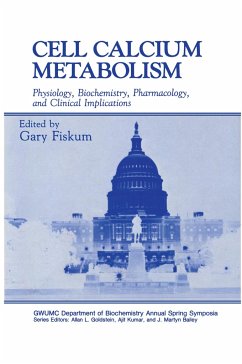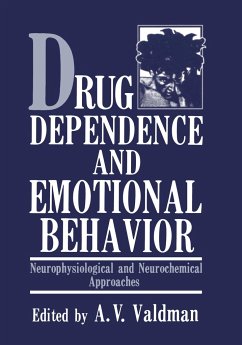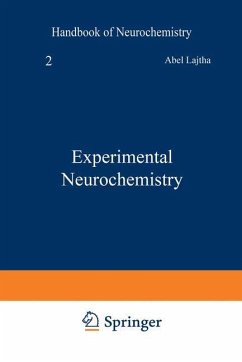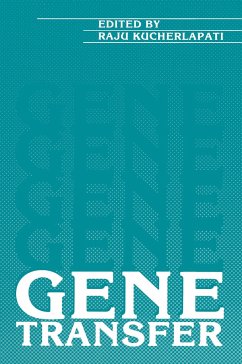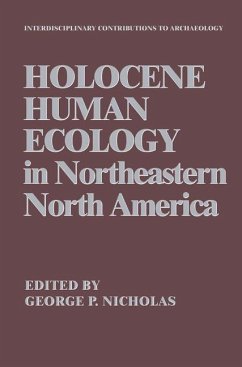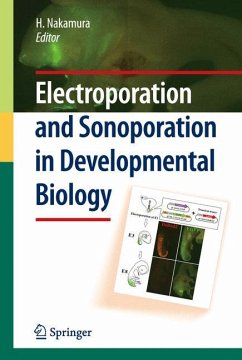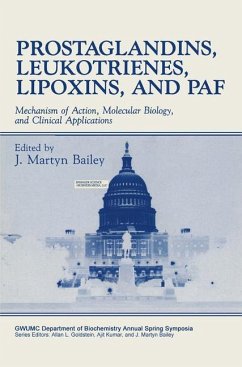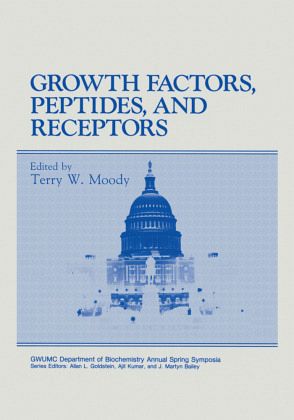
Growth Factors, Peptides, and Receptors

PAYBACK Punkte
20 °P sammeln!
The Twelfth Annual Washington Spring Symposium on Health Sciences attracted over 300 scientists from 20 countries. It was held at the Lisner Auditorium of the George Washington University in Washington, D.C. during June 1-5, 1992. The theme of the meeting was "Growth Factors, Peptides, and Receptors," and speakers emphasized both basic and clinical research in these areas. The seven plenary sessions emphasized Peptides, Growth Factors, Peptide Receptors, Growth Factor Receptors, Second Messengers, Proliferation, and Clinical Correlations. The chapters in this volume are derived from each of th...
The Twelfth Annual Washington Spring Symposium on Health Sciences attracted over 300 scientists from 20 countries. It was held at the Lisner Auditorium of the George Washington University in Washington, D.C. during June 1-5, 1992. The theme of the meeting was "Growth Factors, Peptides, and Receptors," and speakers emphasized both basic and clinical research in these areas. The seven plenary sessions emphasized Peptides, Growth Factors, Peptide Receptors, Growth Factor Receptors, Second Messengers, Proliferation, and Clinical Correlations. The chapters in this volume are derived from each of these scientific sessions plus the poster and special sessions. The Abraham White Distinguished Scientist Award was presented to Dr. Solomon H. Snyder for his numerous contributions to the field of neurochemistry. He presented the keynote address "Nitric Oxide: A Novel Neuronal Messenger." Dr. Snyder discussed the pathway of nitric oxide (NO) synthesis by the enzyme NO synthase. Released NO may be responsible for the neuronal toxicity associated with NMDA, an excitatory amino acid analogue. Dr. Snyder noted that NO may be the first of a new class of transmitters, with carbon monoxide being another candidate. The Distinguished Public Service Award was presented to Senator Fritz Hollings in of his leadership and outstanding achievements in the United States Senate recognition and for his legislative support for biomedical research and education. In the symposium banquet address, Senator Hollings stressed the need for continued support of research to combat serious diseases such as cancer.





